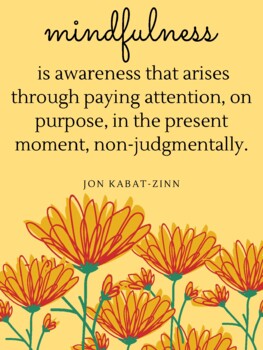
Yoga challenges have been a hot topic for years on social media, especially Instagram. These classes can have many positive effects on your physical and mental health. You can create your own classes by following a set of daily exercises or getting inspiration from others. Be sure to practice safely. Here are some yoga challenges to help beginners. They each include a set of poses and are spread out over 30 days.
o Establish a goal. The goal of the challenge should be something that can motivate you to keep going. It could be as simple as committing for a set number of days, or as difficult as mastering a specific pose. Whatever your goal, you will find something that works. Once you've mastered a few challenges, you'll have a sense of accomplishment. And while you're at it, you can even create a group challenge to compete with a friend or family member.

A friend is an asset in a Yoga Challenge. Sharing your experience makes it easier for you to make daily commitments to exercising. Each other can take on the challenge by sharing the responsibility. It may be easier than what you initially thought. When you do a yoga exercise challenge with friends, it will become a routine. Your friend will keep it fun and you accountable. You can share your experience via social media.
A 30-day yoga challenge is a series of poses that are performed every day. This is a good way for you to improve your health and break bad habits. Ideal is to be intermediate in yoga. But if this is your first challenge, a 30-day one might be a better option. It's a great way for you to strengthen and relax your body while also gaining flexibility.
Another popular option: A yoga challenge lasting a month. Participants are asked to do yoga for at most a month. This is a great way for participants to establish a routine and evaluate their progress. Sometimes, the challenges last for one year. You can still enjoy the benefits from practicing yoga even though you're taking on a new challenge. However, it is important to carefully read the instructions before you start.

While yoga challenges may be fun and useful, they aren't for everyone. You don't have to do a challenge just because everyone else is doing it. A yoga challenge can help you improve your practice of yoga by encouraging mindfulness and physical well-being. It's important that you practice yoga with a qualified teacher. However, it will be easier for you to follow a video. If you're looking for a yoga challenge for beginners, there are plenty of videos on YouTube that you can follow.
FAQ
What is Positive Psychology & Why is It Important?
Positive psychology examines the aspects of positive psychology that can make us feel better about ourselves. These include happiness, optimism. gratitude, hope. kindness. compassion. forgiveness. courage. curiosity. empathy. spirituality. Positive psychology seeks to make individuals happier, healthier and more intelligent through self-improvement.
There are two types, trait positive psychology and positive process psychology. Trait positive psychology studies the natural behavior of people. Positive psychology research explains how certain strategies can be used to reach specific goals.
What causes mental health problems in adolescents?
Adolescence is when we develop our identities. We discover who and where we belong as individuals.
These times are also a good time to make new friendships or romantic connections. These experiences can be stressful.
Stress is normal. But if stress becomes more severe than usual, you should seek medical help.
Sometimes, it is not possible to handle everything on your own.
Support can come from family and friends during stressful times. They can also teach you ways to manage stress.
You might try meditation or exercising. Both of these activities can help you reduce stress.
In addition, you could join a group such as a sports team or church. You will make new friends and meet new people.
What are the 5 ways you can improve your mental and emotional health?
-
Exercise - This improves brain function, and boosts energy levels.
-
Sleep - It is important to get enough rest in order to reduce stress and anxiety.
-
Nutrition - Eating healthy foods such as fruits and vegetables will help keep your body strong and energized.
-
Meditation - Meditation regularly can help reduce stress and anxiety.
-
Socialization - Spending time with friends and family, keeps us happy and connected.
What can I do about mental health issues?
Preventing problems with mental health is much easier said than done. Here are some tips:
-
Don't drink alcohol. The effects of alcohol on moods can lead to depression.
-
Avoid drugs. Drugs can affect your brain chemistry and make you feel worse.
-
Get enough sleep. A lack of sleep can cause anxiety and depression.
-
Exercise regularly. Exercise releases endorphins in your body, which makes you happy.
-
Healthy foods are the best. Junk food can make you feel lazy and unwell.
-
Spend quality time with loved ones. Spending quality time with the people you love can lift your mood.
-
Have fun. Have fun!
-
Take breaks from social media. You may feel isolated or lonely on social media.
-
Treat yourself with kindness. Treat yourself nicely, even if you aren't feeling great.
-
Ask for help. If you're struggling to cope, ask for help. Talking to a friend or family member can help.
-
It's okay for you to cry. It helps to release stress and tension. It doesn't necessarily signify that something bad has happened.
-
Keep busy. Try doing something you enjoy.
-
It is important to maintain good hygiene. A lack of hygiene can make you look unattractive and unclean.
-
Stay connected. Connecting with others will help you stay positive.
-
Learn how to relax. You can relax by using relaxation techniques such as yoga or meditation to help you manage stress.
-
Find meaning in what your do. Finding meaning in your hobbies or work can help you feel fulfilled.
-
Keep your eyes on the present moment. You won't worry about the future if you are focusing on the moment.
-
Set goals. It can be motivating to set goals.
-
Do something for yourself. Being kind to yourself can help boost self-esteem.
-
Practice gratitude. Gratitude will help you appreciate all the positive things in your life.
-
Volunteer. Volunteering can be a fun way to make a difference and spend your time.
-
Give back. Giving back to others can make you feel fulfilled.
-
Watch out for warning signs. If you notice any changes in your behavior, don't hesitate to reach out for help.
Why is mental well-being important?
Work, play, learn and love. Mental health refers to our overall wellbeing. When we refer to mental health, we mean the physical, psychological and spiritual factors that have an impact on us every day. The good news is that there are many ways to care for yourself mentally, physically, emotionally, spiritually, socially, and environmentally. You don't have to do everything at once; just start somewhere!
Understanding where your mental health stands now is the first step toward improving it. To find out if your support system is adequate, take this quiz. If your score is low, you may want to make some lifestyle changes.
Imagine you have scored high. Consider the following tips to improve and maintain your mental well-being.
-
Get Enough Sleep. Getting adequate rest helps keep your brain sharp and energized. The American Academy of Pediatrics (AAP), suggests that you get 7-8 hours of rest each night.
-
Exercise Regularly. Exercise releases endorphins which can make you happy and less likely be stressed. Try to do 30 minutes of exercise five days a week.
Statistics
- It does have some influence, but not nearly as much as we might think, so focusing less on attaining wealth will likely make you happier (Aknin, Norton, & Dunn, 2009); (positivepsychology.com)
- Appropriate nutrition and exercise are likely among the most efficacious and cost-effective positive mental health interventions. (ncbi.nlm.nih.gov)
- Neuropsychiatric diseases are the leading cause of death and disability in the U.S., accounting for 18.7 percent of all years of potential lifespan loss and premature mortality.
- According to the National Alliance of Mental Illness (NAMI), one in five Americans experiences mental health issues which translates to more than 40 million adults a year. (doctorondemand.com)
- Similarly, while there is some agreement about the boundaries of typical mental disorders 2, there is likely less agreement about those for positive mental health. (ncbi.nlm.nih.gov)
External Links
How To
How to Improve Your Memory
Memory is something that everyone would love to be able remember better. Memory loss happens to everyone at some time. In fact, more than half of Americans over 65 suffer from some form of dementia.
You have many options for improving your memory. Here are three simple steps to take right away:
-
Eat More Fruits & Vegetables. Vegetables contain phytochemicals, vitamins, nutrients, fiber, antioxidants, and minerals that enhance brain function. They also contain essential nutrients that protect against neurological disorders.
-
Get enough sleep. Low sleep quality has been linked both to memory loss, poor concentration, and memory loss. You should get seven to eight hours sleep each night.
-
Take a stroll. Walking stimulates blood flow, which increases memory. Walking makes you slimmer and healthier.